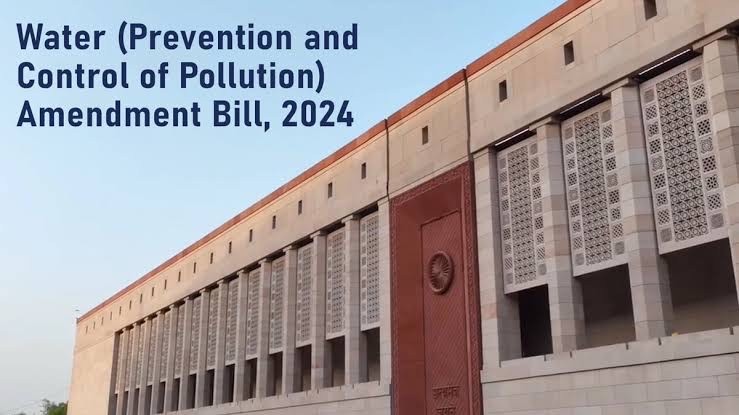Water (Prevention and Control of Pollution) Amendment Bill, 2024 (Indian Express)

- 06 Feb 2024
Why is it in the News?
The Centre on Monday introduced a Bill that would enable it to prescribe the norms for nominating chairpersons of State Pollution Control Boards, exempt certain industrial units from restrictions, and decriminalize “minor offenses” related to water pollution.
News Summary:
- The Water (Prevention and Control of Pollution) Amendment Bill, 2024 has been introduced in the Rajya Sabha.
- It is applicable to Himachal Pradesh and Rajasthan, with the potential to extend to other states through resolutions under the Water (Prevention and Control of Pollution) Act, 1974.
- The Bill empowers the Centre to exempt certain industrial plants from restrictions and issue guidelines related to industry establishment.
About Water (Prevention and Control of Pollution) Amendment Bill, 2024:
- Enacted in 1974, the Water (Prevention and Control of Pollution) Act aimed to prevent and control water pollution, establishing penal provisions for non-compliance.
Rationale for the Amendment:
- The Amendment Bill underscores the importance of democratic governance, emphasizing trust in people and institutions. It addresses the outdated regulations leading to a trust deficit.
Key Amendments Proposed:
- The Amendment Bill seeks to modernize the existing penal provisions, replacing imprisonment with fines for minor violations. This move aligns with the principles of Ease of Living and Ease of Doing Business.
Major Features of the Amendment Bill:
- The Bill proposes several key changes, including:
- Prescribing the process for nominating the chairman of the State Pollution Control Board by the Central Government.
- Granting the Central government authority to exempt certain industrial plants from restrictions on new outlets and discharges.
- Issuing guidelines on matters related to the establishment of industries by the Central government.
- Decriminalizing minor offenses and substituting them with monetary penalties.
- Specifying the adjudication process for penalties by officers of appropriate rank.
- Outlining penalties for non-compliance with regulations regarding new outlets, discharges, and sewage.
- Allocation of penalty amounts to the Environmental Protection Fund established under the Environment (Protection) Act, 1986.
